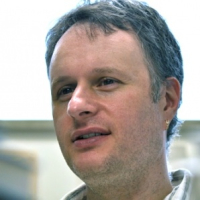I’ll admit that for a long time I was skeptical of Yair Lapid and his party, Yesh Atid. The common assumption—correct, as it turned out—was that he’d do well in this election: somewhere between 12 and 20 seats. But the history of “centrist” parties in Israel is one of shining stars that burn themselves out within an election or two, and observers (including me) have long considered Lapid too vague to be able to pin down on specific policies. Even after the election, Dimi Reider called him the “tofu man,” implying that he can be made into many different forms because he has no specific shape to him.
But I’m starting to rethink my initial assessment. I realize the jury is still out on whether he’s truly serious about the peace process, or whether he has a strong economic plan to fix Israel’s many problems. But I’ve come to appreciate that he has a well-developed sense of Israel in all its divisions, and most importantly of its need to knit together disparate “tribal groups” (his words) to fashion an open-minded society embedded in a better-functioning polity. This, rather than his emphasis on drafting the haredim (which I’m more and more convinced isn’t well thought-out and might not even be workable) is his strength and his appeal.

Lapid’s ideas about Israeli diversity are not new. But they were given greater public attention at his first speech to the Knesset (Hebrew) this week. Quoting from David Ben-Gurion, he proclaimed that “The task before us, shattered to pieces, is the state’s ability to exercise sovereignty over the different segments of society.” He’s right. Any country, especially one as diverse as Israel, needs to engage in a process of nation-building (social cohesion and broad legitimacy) as much as state-building (strengthening governance).
Building on that observation, he went on to note the “anarchy” that reigns in the West Bank because—despite Israeli control over it—settlers commit acts of violence seemingly at will. He didn’t use the term to describe politics inside the Green Line, but he might have: he argued that the state has simply lost the ability “to make decisions and tell certain groups what can and can’t be done.” And, of course, he called for an immediate renewal of peace talks with the Palestinians.
His main focus, repeated in his speech, has been on sharing the burden—otherwise known as drafting the haredim into the military or national service, and bringing Arab citizens into the latter. But he gave another idea in his Knesset speech, calling for secular students to learn Talmud, and for haredi students to study English. The aim is to increase understanding of the other group and of broader issues as well.
Israel is a difficult country to govern. There are multiple groups competing for attention and resources, and many of them have different ideas about what the state should look like, where its borders should be, from where its laws should be drawn—in short, what constitutes Israel-ness. If I didn’t know better, I’d say Lapid is channeling the late Baruch Kimmerling, the eminent Israeli sociologist whose work focused on the breakdown of a cohesive Israeli society.
Both were right. Fears of global delegitimization and the menace from Iran, Hezbollah, and Hamas are real and need to be addressed. But no less threatening to the country’s survival and health is its lack of interest in grappling with what are becoming crippling social divisions.
African refugees, foreign workers, Ethiopians, Ashkenazim, Russians, Mizrachim, Palestinians, settlers, haredim, dati leumi (national religious), the secular, the traditional—something needs to knit them together into a workable and tolerant social order.
I’m not saying Lapid is the only one capable of doing so, or even that he’s the one to try. He’s still a bit vague on details of implementation, and Palestinian citizens of Israel get less attention in his arguments than Jewish citizens.
But Lapid’s talking about all of this, and the urgency of doing so matches the ever-present security threats the country faces. So, for now, I’m willing to withhold judgment on his efforts until he’s tried.





